- Home
- Warhammer 40K
Spear of the Emperor - Aaron Dembski-Bowden Page 18
Spear of the Emperor - Aaron Dembski-Bowden Read online
Page 18
Tyberia and I had discussed our eventual fate, days ago, with the Nemetese thralls in our group. What should we do, when they came for us? Was it nobler to resist at any cost, forcing our new masters to butcher us at once?
‘No.’ Tyberia was adamant. It wasn’t just surety that blazed in her eyes, it was hatred, ripe and raw. ‘This isn’t about nobility. Our duty is to survive at any cost, enduring whatever we have to endure, to inflict the most harm upon our captors.’
Many agreed with her, but not all. Nor was it fear that motivated some of them, but a divergent sense of honour.
‘Better that we die untainted,’ one of the thralls insisted with grim purpose. He didn’t need to clarify; we all knew that the longer we remained in this hellish place, the greater the risk of mutation and spiritual deformity. Even the air here was a slow poison. Corruption radiated from the warship’s bones.
‘Dying is the easy way out,’ avowed Tyberia. ‘Take your purity with you to the grave if you want. When I stand before the God-Emperor for judgement, He’ll know I did everything I could to avenge myself on His foes.’
Some of the Spear serfs held to a brighter delusion: ‘It’s our duty to escape,’ one of them said. This was Carakus, the oldest of his kind here, one of Tolmach’s arming thralls. ‘Our masters would expect nothing less from us.’
Tyberia had nodded, though her eyes were hard and cold as glass.
‘There are Spears on this ship,’ Carakus insisted. ‘Held captive. Your master, I believe, as well. There’s hope, yet.’
That, I thought, was debatable.
‘I’ve never seen this side of you,’ I’d whispered to Tyberia later that night. ‘I had no idea this was who you really were.’
She had sighed against my back. I thought she might be weeping. In case she was, I let her believe she was keeping those bitter and wrathful tears a secret. There was no weakness in them.
The next day, a pack of Pure warriors led a host of mutants into our chambers. They’d come to put us to work. The mutants had either been born twisted or devolved along the course of their wretched lives as slaves of the Exilarchy. Almost thirty of the captives rose up, fighting their final, futile battle with no weapons but their fists and teeth. They were gunned down together, those brave souls too proud to endure slavery and the cowards too frightened to live in misery for the hope of taking vengeance. The Pure leader laughed as he killed, delighted by the hopeless resistance.
We watched them die, shot through and beaten into bloody matter, as we stood in a mute, filthy herd, waiting to be led to our new lives. We watched that Pure’s ceramite plate turn from white to red.
I remember seeing the twisted, strong forms of our Pure masters – the disgusting beauty of them, the sins that their dark prayers had wrought upon their flesh – and I knew a shudder of naked fear. The Spear thralls gushing their wasted lives out across the deck were right; there was only vileness ahead for those that survived in this slavery.
I stepped forward, only to be held back by Tyberia’s hand on my remaining arm. She was sick by then, blazing with fever, lending a sick heat to her eyes and a maddened strength to her grip.
‘No,’ she whispered to me. ‘Not like this. Survive, Anuradha. Survive.’
Wordlessly, I stepped back into place.
But one of the Pure had noticed my momentary defiance. He moved over to me, where some captives shrank back in the hopes of going unnoticed, and others remained proud despite the ruthlessness of their recent humbling.
The Traitor Space Marine clutched my jaw in his armoured hand, forcing me to look up at him. His gums were rotten meat. Rashes inflamed the skin of his face where he’d sewn precious gems into his flesh, like some jewel-mad hive-spire king. Some of the Pure were mostly unchanged from the men they’d once been. Some of them looked like this. His white-and-bronze armour was threaded through with bioceramite bones, like an aborted exoskeleton.
When he turned my bandaged face left and right, he smeared fresh blood from the murdered thralls over my chin, and when he lifted my bandage to expose the wound, I felt the breath of his chuckle in the hollow ruin of my eye socket.
‘Something to say?’ He grinned the words down at me, his voice brutally low, like all of his kind.
I said nothing.
‘Do you want to join them?’ He tilted his head back towards the punctured, riven corpses flooding the deck with their blood. Each one was a broken bag of gore. Most didn’t even resemble people any more.
I still said nothing. He released me with a gentle shove, back into the arms of Tyberia and Carakus.
The mutants cracked their whips, and we started walking.
2
They branded us. At first it seemed merely a matter of spite, for why did we need symbols to mark us as slaves? We could hardly flee our captivity, and there was no mistaking us for anything but what we were.
We’d later learn that we were the property of different masters; each of the Pure shared in the spoils of war, and so we were marked with their runes accordingly. At the time, treated like mindless livestock, we were pushed one by one into the restraining arms of two scabrous mutants, while the Pure overseer carved runes into the flesh of our foreheads.
Once it was done, I brushed charry dust from an iron pipe built into the wall, polishing it enough to make out the blurry impression of my reflection. Red ran down my face in trails from the mark of ownership. The symbols meant nothing to any of us. Tyberia, Carakus and I had the same sigil cut into our bleeding faces: a twisted name-rune or a hieroglyph from a script we didn’t know. We were property of unknown masters, to be thrown into tasks we couldn’t yet guess.
We weren’t left in ignorance for long. They put us to work on one of the manufactory decks, in the furnace sector. Down there, the Venatrix’s dry heat became a scorching pressure that sucked the sweat from your skin. Men and women expired in a single day for want of water. Our arms were soon speckled with the pockmarks of white-hot effluvia from the foundry fires, spot-scarred to the forearms from loading the machines with fuel and hauling out the metal waste on chains. I struggled with my bionic arm gone, and it hurt to see how Tyberia and Carakus took up my slack. Lazy and weak slaves were killed, beaten to death where they fell. My friends were keeping me alive with their efforts and, through the shame, I loved them for it.
The days rolled on in the same unwinding grind. Dawn was whenever our overseers demanded we begin work. Night was whenever they herded us back to our chamber.
Privation eats at the body punishingly fast. We grew weaker as life dimmed to focusing on nothing but our immediate needs. Our bodies thinned and hardened. Even our internal bionics suffered and slowed through a lack of nourishment to our organic functions. Soon, we were killing for food and water in the crowded communal chamber every night. It was the only way to guarantee we’d have enough to sustain ourselves through another miserable day. In one of the outbreaks of violence, before our laughing overseers could lash us back into order, I fought frantically with another slave, scrabbling and rolling over the floor with him like vermin battling for scraps. Only when I had him pinned beneath my knees, with my fist drawn back to deliver another blow, did I realise this walking revenant of a man had Nemetese tattoos on his shattered face.
For a second, I didn’t care. I stared down into his bloodied features, his stick-thin arms raised in useless warding, and I wanted to finish it. He was even weaker than I, with my one arm. Starvation was a day or two away from claiming him, and I’d hastened it by beating him bloody. There was no guilt at all. Not even guilt’s shadow. I wanted him dead. That power, hateful as it was, made me feel free. Here was a choice I could make, an action I could take. A problem I could confront and end, amid day after day of forced servitude.
But I lowered my hand. To this day, I don’t know how I did it. I think there were tears of effort in my eyes, though that can’t be true; our bodi
es were raw by then with the rarity of fluid. Just blinking felt like wiping my remaining eye with sand.
Carakus hauled me to my feet, and I shook him off with a grunt. ‘Don’t touch me, old man. I let him live, didn’t I?’
More days passed. Sometimes the Venatrix shook around us. There was never any warning, and nothing in the way of enlightenment from our overseers. Ships in the warp will always shiver and buckle, and translation to and from the Sea of Souls forever jarred the mind and body with concussive force, but these were tremors on top of the expected motions of a long void journey. They were quakes that ran the length of the warship, hard enough at times to throw us to the deck.
Carakus and I had served on warships for years; we recognised the judders for what they were.
‘Impacts on the superstructure,’ he said, as we strained one day with a cauldron of molten lead, hauling it into place. ‘It’s the Hex.’
‘It can’t be the Hex.’ Tyberia was adamant. She’d been keeping track of the hours since our capture. ‘It’s been fifty-three days. The Hex is gone.’
‘He’s right, Ty,’ I said. ‘Those are incendiary quakes. I don’t know if it’s the Hex, but someone is firing at the ship.’
She refused to countenance it. The surviving Spear thralls joined Carakus in his bitter optimism, but Tyberia believed holding on to hope would just see us miserable and dead that much faster. Focus on surviving, she said. Don’t get distracted by hope.
Working as we were ordered was still no guarantee of survival. The mutant overseers left in charge by the Pure weren’t reluctant to drag captives away on malicious whims we couldn’t understand. These poor souls were returned to us only half the time, and those hauled back into our communal chamber were better off dead. The worst had been flayed and, somehow, still lived when they cast him onto the filthy floor of our pathetic sanctuary. No one could touch him; even the rancid air on his skin was unendurable agony. We had no solace to offer him, no comfort to give.
Tyberia was feverish again that night, delirious from the natural disease that rampaged through so many unwashed humans in close quarters. A nasty clarity returned to her eyes when she heard the dying man’s moans.
‘I’ll kill him,’ she said, through fever-trembling lips. ‘I’ll finish it.’
‘No.’ I held her down.
‘Someone has to kill him, Ana.’ Her hand was a claw on my wrist.
‘I know.’ I rose to my feet, slipping her grip from my arm and glancing to Carakus. ‘Stay with her, old man.’
I left them there and did what needed to be done. It didn’t take long. That, at least, was a mercy.
Two nights later, they took Carakus. Even Tyberia’s resolve nearly broke then, as she warred with herself over the need to drag him back from the mutants’ clutches. He saw it too, and the old man warned her back with a glare as they wrapped a chain around his throat to drag him away.
‘Skovakarah uhl zarûn,’ he said to her.
She swallowed, trembling with fatigued rage, and finally nodded.
They returned him after several hours. We could do nothing but hold him, which we did as gently as we could, and offer a wet rag to a mouth now scarred and beaten toothless. He was unconscious, but the water trickled down his throat, drip by drip. It was all we could offer.
Neither of us could sleep while we held him.
‘Talk, Ana,’ Tyberia said softly. ‘Say something.’
‘I have nothing to say, sister.’ I looked around us, where the sniffing, coughing, stinking masses of humanity slept in uneasy and fragile peace. ‘Nothing at all.’
‘No?’ She grunted in bleak amusement. ‘Tell me what you’d do to Kartash if you saw him again.’
‘Fair point.’ That memory was too strong to lose in the haze of my damaged recollections. I looked at Tyberia suddenly. ‘Did you see his sword?’
Her eyes met mine. ‘What?’
I described what I’d seen. The weapon of unnatural jade. The engraved patterns, like celestial circuitry. The way it shivered in and out of sight, defeating the eye.
‘I saw no sword,’ she said, looking at me with sympathy. ‘And where would he have got hold of such a thing?’
‘I don’t know.’
‘Are you sure you saw it? We were all seeing what wasn’t there. There’s also your head wound… and your damaged memories…’
I wasn’t sure of anything. And seeing Kartash for all of a single second’s span wielding an unnatural sword… No, I wasn’t ready to swear to what I’d seen. Not after the rest of the deceptive madness we’d witnessed when the Geller field failed.
We lapsed back into silence.
‘Why were you so unbearable?’ I asked quietly.
‘What?’ she asked again, her tone sharper. ‘What do you mean?’
As I spoke, I squeezed a few trickles of warm water into the mouth of our dying friend. ‘Always reporting my infractions to Amadeus. Always scowling when I earned any praise. Why? What did I do that aggrieved you?’
She released the breath she’d been holding. ‘I was trained on the Eunoia. We were taught to act and obey. Precision is everything. The letter of the law, not the spirit of it. And you… you kept earning praise for going your own way. Asking questions I was taught never to ask. Venturing into that tomb. Throne, even shooting over Brêac’s shoulder.’
‘It’s how I was trained. I broke no rules, Ty.’
‘I know. But you bent them, and I was taught that was no better than breaking them. Throne, the Spears even gave you that regency blade, worth a prince’s fortune. You could sell it and buy a tower in a hive spire.’
‘The sword was a symbol of the rebellion,’ I replied. ‘It couldn’t stay on Kouris. That’s the only reason they gave it to me. Well… for that reason, and as a lesson to Amadeus, I think. Something about brotherhood and unity, maybe. They rewarded me for fighting with them, when he stayed with the Guard.’
‘Maybe.’ She seemed unconvinced. ‘Tell me why you hate Amadeus. You never told me.’
I squeezed the rag, shedding another few drops of stagnant water across Carakus’ mutilated mouth. He didn’t wake. He didn’t move.
‘I don’t hate Amadeus,’ I said, my voice low. ‘My hatred is reserved for our captors. And for Kartash,’ I added. I was too weary to even clench my teeth and breathe passion into the curse.
‘Then what is it you feel? What are you hiding?’
I was hiding nothing, and I told her so. But she deserved the truth, as well. ‘The Chapter let my father die,’ I admitted. ‘For years, I bore that grudge, but… I understood it. I didn’t hate them for allowing it to happen. It was our place in the world. My anger was a child’s anger.’
Tyberia knew well enough that silence can sometimes be an invitation. She didn’t need to ask for more; once I’d started, it poured out of me. This drainage of venom was the second time she healed me, and I suspect she knew it.
‘After he was gone, I looked after my brother. For years. Even saw him apprenticed to my senior serf in hydroponics. Narakhir had aptitude for the advanced strains of cultivation that would’ve seen him promoted out of our district. It would’ve been a good life.’
Tyberia’s eyes never left mine. ‘Would have been?’
‘They came for him. The Mentors. They took him for the trials. They said the Daaz bloodline once had a male scion that wore the white and green. Tradition meant that Narakhir could be taken and trained if that’s what he desired, for the chance to join the Chapter as a battle-brother. My father had never mentioned it. Maybe the Mentors missed a generation.’
Tyberia said nothing, but I sighed as if she’d asked the obvious question. ‘He was a twelve-year-old boy, told he had the chance to become one of the Emperor’s Angels. He left that day, swearing he’d come back for me.’
When I’m one of them, Ana, we’ll live in the higher fortr
ess. Sunlight every day. Never go hungry again.
Tyberia waited in silence, watching me. Waiting. Knowing she’d lanced the boil, and honesty would flow forth like pus. It couldn’t be kept in any longer.
‘They never told me what happened to him,’ I said, ‘but I knew. I knew it the moment they took him. He was too gentle, too caring to ever pass the trials. Months passed, and no word came, but that was no surprise. I was a hydroponics menial. I’d probably have only seen a Mentor face to face again in my life if I’d had a son during one of their recruit harvests. In the end, I petitioned – for more than a year – for higher thrall training. They approved of my aptitudes and drafted me into the process. I never expected to reach helot rank. I didn’t want to die on some battlefield somewhere, or… or die like this. I just wanted to get high enough clearance to access the archives and find out what happened to my brother.’
‘What happened to him?’ Tyberia asked. She was stroking Carakus’ hair as we talked.
‘He was killed by another recruit. It wasn’t even in training. It was a brawl in the barracks, between volatile young men being trained to become weapons.’ I snorted, exhaling the bitterness of a decade and more. ‘The boy that killed him was commended for it.’
‘I think,’ Tyberia said in the silence that followed, ‘if that was my tale, Ana, I’d probably hate them too.’
I shook my head, unsure if hate was truly the right word. What did it matter? Neither of us would ever return to the Mentors now.
‘So what’s your tale?’ I asked her.
She demurred. ‘I don’t have one.’
‘Everyone has one, Ty.’
‘Not me.’
She went quiet for a time, trying to doze. We sat together, side by side, sharing meagre comfort as we stayed with Carakus. I think she was going to tell me, but against all odds, I slept fitfully against her shoulder, and we spoke no more that night.
Carakus never regained consciousness. What was left of him died before dawn, cradled in our arms. Before the overseers took his body, Tyberia painted her face with his blood. She marked her features in mimicry of Nemetese woad, and only then did we rise to surrender the old man’s body to our enemies.

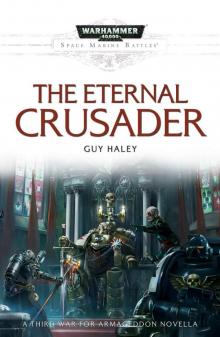 The Eternal Crusader - Guy Haley
The Eternal Crusader - Guy Haley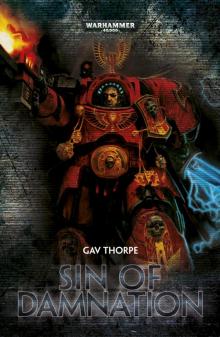 Sin of Damnation - Gav Thorpe
Sin of Damnation - Gav Thorpe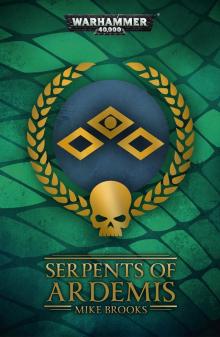 Serpents of Ardemis - Mike Brooks
Serpents of Ardemis - Mike Brooks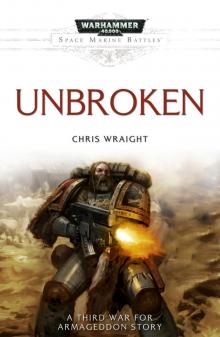 Unbroken - Chris Wraight
Unbroken - Chris Wraight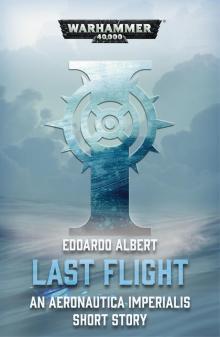 Last Flight - Edoardo Albert
Last Flight - Edoardo Albert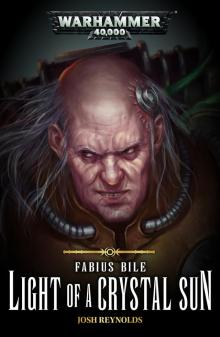 Light of a Crystal Sun - Josh Reynolds
Light of a Crystal Sun - Josh Reynolds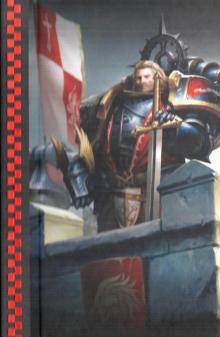 Lion El'Jonson- Lord of the First - David Guymer
Lion El'Jonson- Lord of the First - David Guymer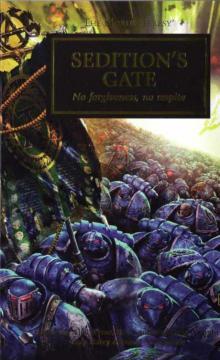 Sedition's Gate - Nick Kyme & Chris Wraight
Sedition's Gate - Nick Kyme & Chris Wraight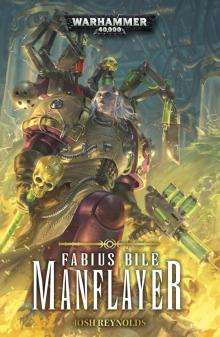 Manflayer - Josh Reynolds
Manflayer - Josh Reynolds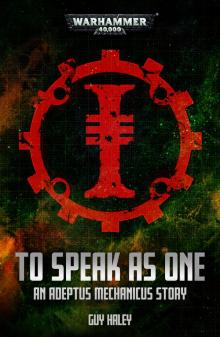 To Speak as One - Guy Haley
To Speak as One - Guy Haley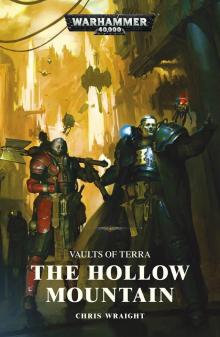 Vaults of Terra- The Hollow Mountain - Chris Wraight
Vaults of Terra- The Hollow Mountain - Chris Wraight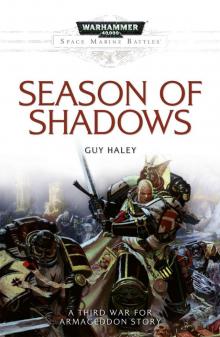 Season of Shadows - Guy Haley
Season of Shadows - Guy Haley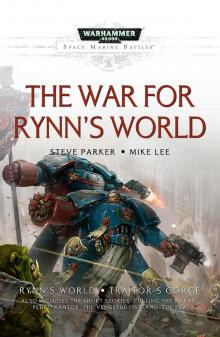 The War for Rynn's World - Steve Parker & Mike Lee
The War for Rynn's World - Steve Parker & Mike Lee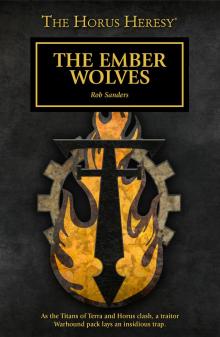 The Ember Wolves - Rob Sanders
The Ember Wolves - Rob Sanders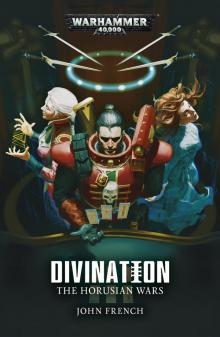 Divination - John French
Divination - John French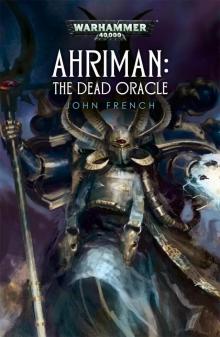 The Dead Oracle - John French
The Dead Oracle - John French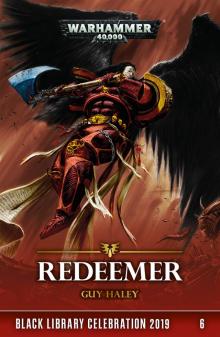 Redeemer - Guy Haley
Redeemer - Guy Haley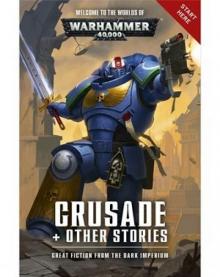 Crusade & Other Stories - Dan Abnett Et Al.
Crusade & Other Stories - Dan Abnett Et Al.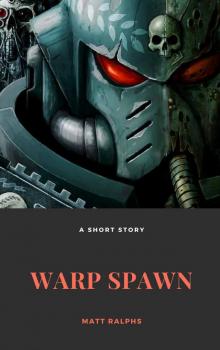 Warp Spawn - Matt Ralphs
Warp Spawn - Matt Ralphs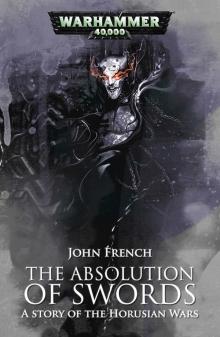 The Absolution of Swords - John French
The Absolution of Swords - John French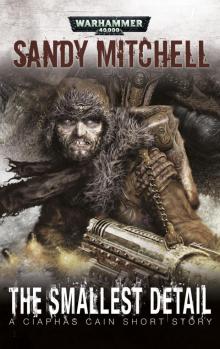 The Smallest Detail - Sandy Mitchell
The Smallest Detail - Sandy Mitchell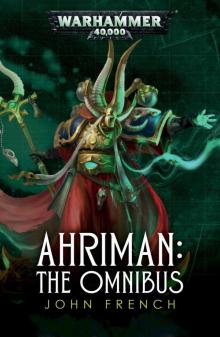 The Omnibus - John French
The Omnibus - John French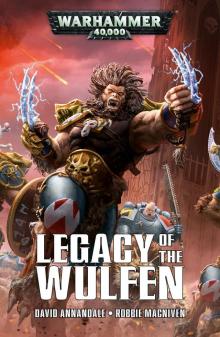 Legacy of the Wulfen - David Annandale & Robbie MacNiven
Legacy of the Wulfen - David Annandale & Robbie MacNiven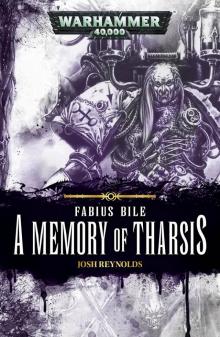 A Memory of Tharsis - Josh Reynolds
A Memory of Tharsis - Josh Reynolds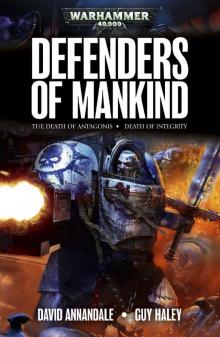 Defenders of Mankind - David Annandale & Guy Haley
Defenders of Mankind - David Annandale & Guy Haley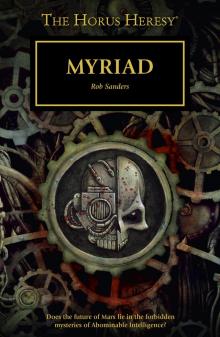 Myriad - Rob Sanders
Myriad - Rob Sanders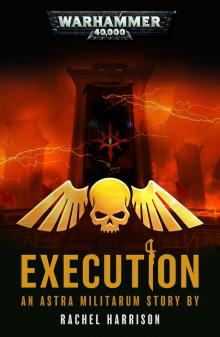 Execution - Rachel Harrison
Execution - Rachel Harrison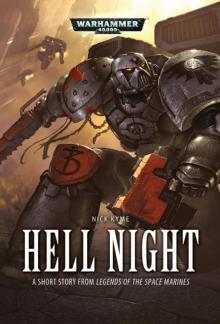 Hell Night - Nick Kyme
Hell Night - Nick Kyme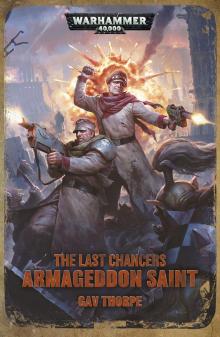 Armageddon Saint - Gav Thorpe
Armageddon Saint - Gav Thorpe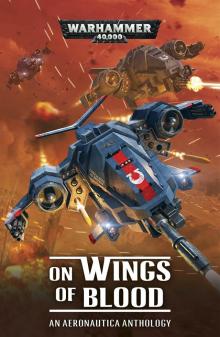 On Wings of Blood
On Wings of Blood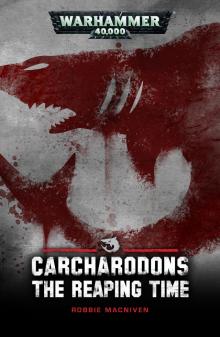 The Reaping Time - Robbie MacNiven
The Reaping Time - Robbie MacNiven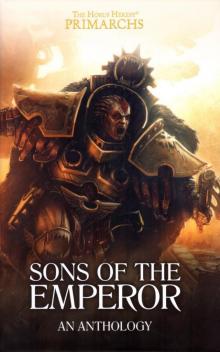 Sons of the Emperor
Sons of the Emperor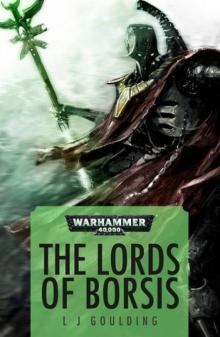 The Lords of Borsis - L J Goulding
The Lords of Borsis - L J Goulding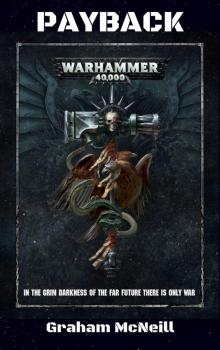 Payback - Graham McNeill
Payback - Graham McNeill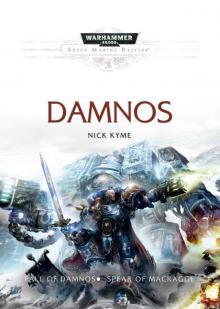 Damnos - Nick Kyme
Damnos - Nick Kyme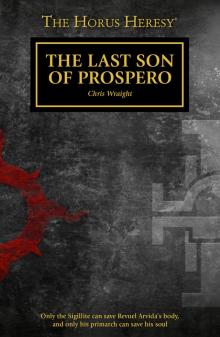 The Last Son of Prospero - Chris Wraight
The Last Son of Prospero - Chris Wraight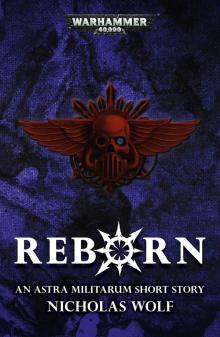 Reborn - Nicholas Wolf
Reborn - Nicholas Wolf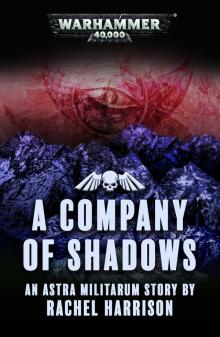 A Company of Shadows - Rachel Harrison
A Company of Shadows - Rachel Harrison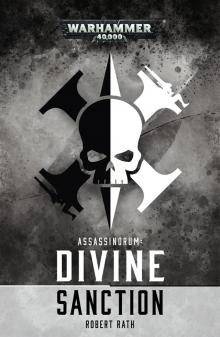 Assassinorum- Divine Sanction - Robert Rath
Assassinorum- Divine Sanction - Robert Rath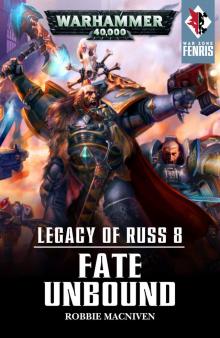 Fate Unbound - Robbie MacNiven
Fate Unbound - Robbie MacNiven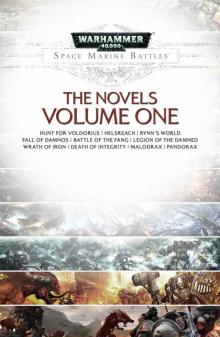 Space Marine Battles - the Novels Volume 1
Space Marine Battles - the Novels Volume 1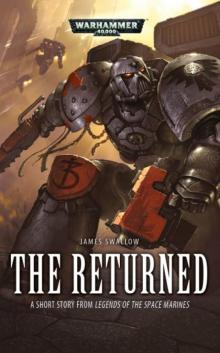 The Returned - James Swallow
The Returned - James Swallow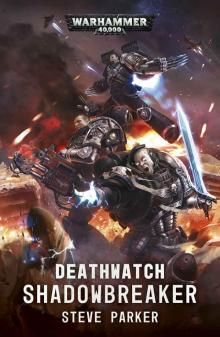 Shadowbreaker - Steve Parker
Shadowbreaker - Steve Parker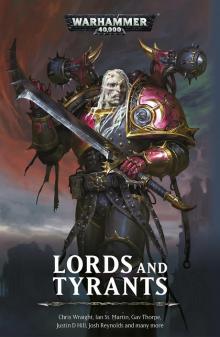 Lords and Tyrants
Lords and Tyrants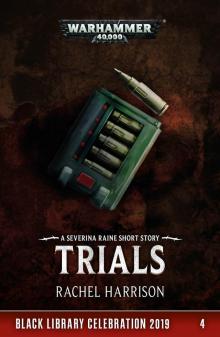 Trials - Rachel Harrison
Trials - Rachel Harrison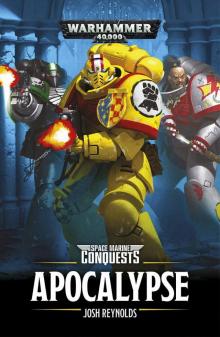 Apocalypse - Josh Reynolds
Apocalypse - Josh Reynolds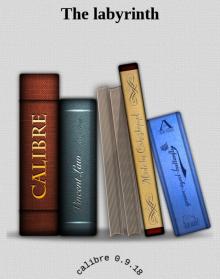 The labyrinth - Richard Ford
The labyrinth - Richard Ford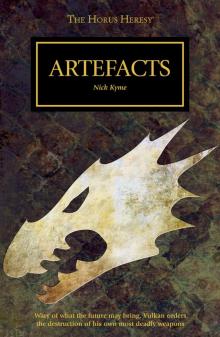 Artefacts - Nick Kyme
Artefacts - Nick Kyme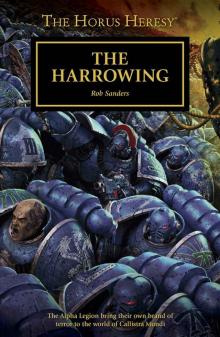 The Harrowing - Rob Sanders
The Harrowing - Rob Sanders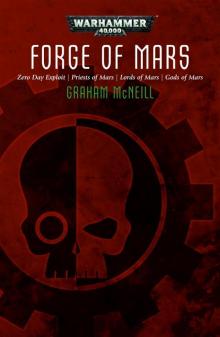 Forge of Mars - Graham McNeill
Forge of Mars - Graham McNeill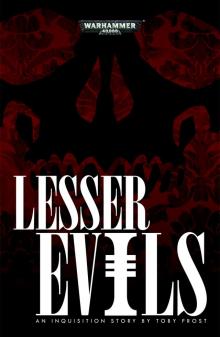 Lesser Evils - Toby Frost
Lesser Evils - Toby Frost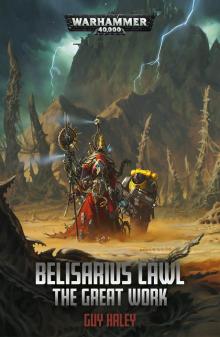 Belisarius Cawl- the Great Work - Guy Haley
Belisarius Cawl- the Great Work - Guy Haley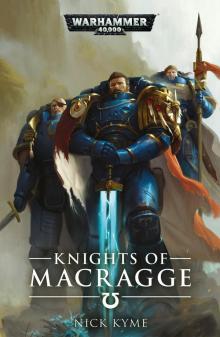 Knights of Macragge - Nick Kyme
Knights of Macragge - Nick Kyme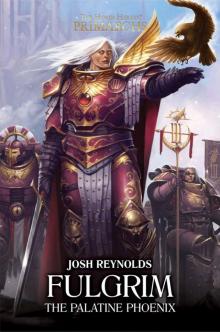 Fulgrim- The Palatine Phoenix - Josh Reynolds
Fulgrim- The Palatine Phoenix - Josh Reynolds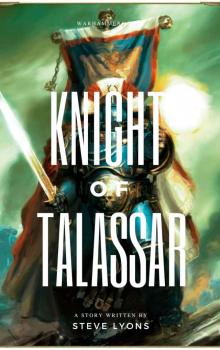 Knight of Talassar - Steve Lyons
Knight of Talassar - Steve Lyons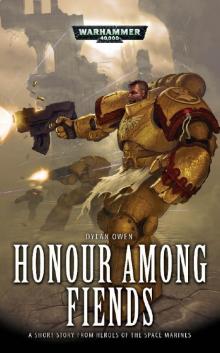 Honour Among Fiends - Dylan Owen
Honour Among Fiends - Dylan Owen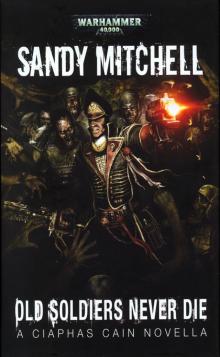 Old Soldiers Never Die - Sandy Mitchell
Old Soldiers Never Die - Sandy Mitchell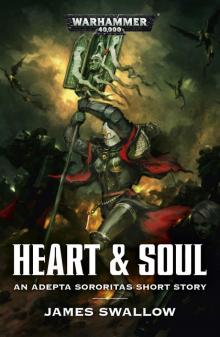 Heart & Soul - James Swallow
Heart & Soul - James Swallow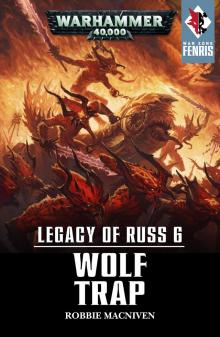 Wolf Trap - Robbie MacNiven
Wolf Trap - Robbie MacNiven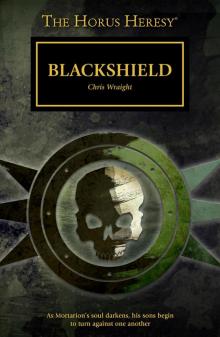 Blackshield - Chris Wraight
Blackshield - Chris Wraight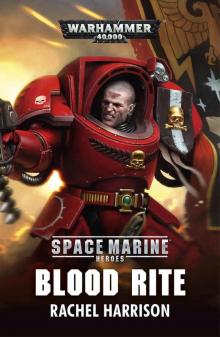 Blood Rite - Rachel Harrison
Blood Rite - Rachel Harrison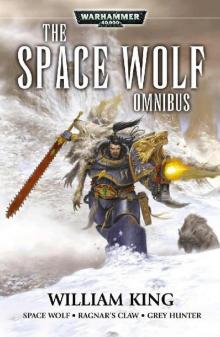 The Space Wolf Omnibus - William King
The Space Wolf Omnibus - William King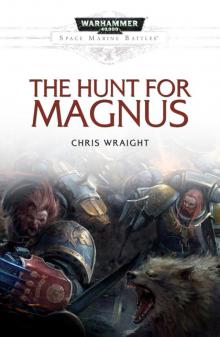 The Hunt for Magnus - Chris Wraight
The Hunt for Magnus - Chris Wraight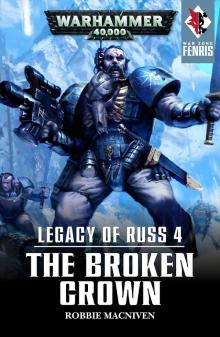 The Broken Crown - Robbie MacNiven
The Broken Crown - Robbie MacNiven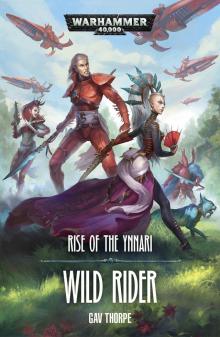 Wild Rider - Gav Thorpe
Wild Rider - Gav Thorpe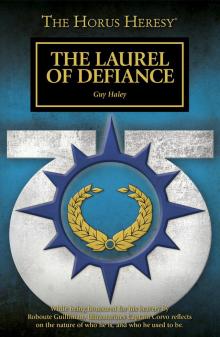 The Laurel of Defiance - Guy Haley
The Laurel of Defiance - Guy Haley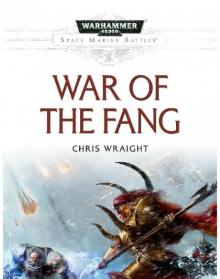 War of the Fang - Chris Wraight
War of the Fang - Chris Wraight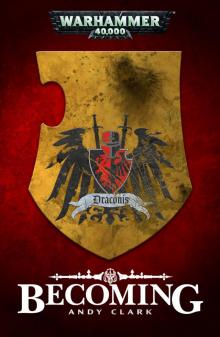 Becoming - Andy Clark
Becoming - Andy Clark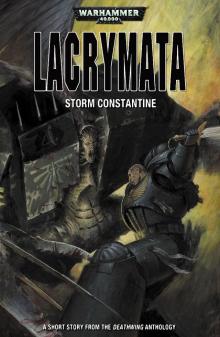 Lacrymata - Storm Constantine
Lacrymata - Storm Constantine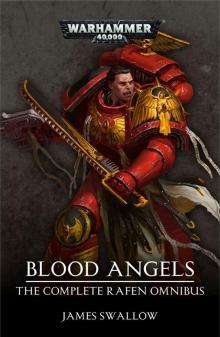 Blood Angels - The Complete Rafen Omnibus - James Swallow
Blood Angels - The Complete Rafen Omnibus - James Swallow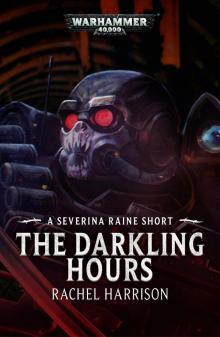 The Darkling Hours - Rachel Harrison
The Darkling Hours - Rachel Harrison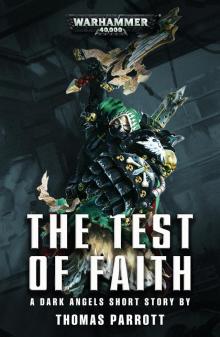 The Test of Faith - Thomas Parrott
The Test of Faith - Thomas Parrott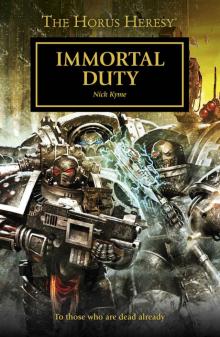 Immortal Duty - Nick Kyme
Immortal Duty - Nick Kyme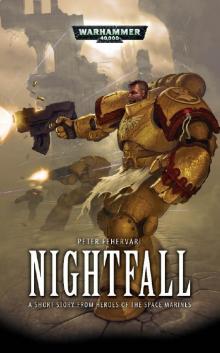 Nightfall - Peter Fehervari
Nightfall - Peter Fehervari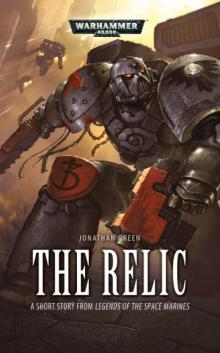 The Relic - Jonathan Green
The Relic - Jonathan Green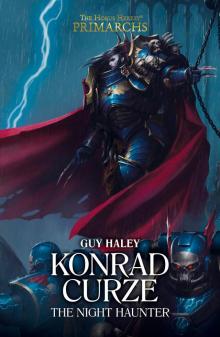 Konrad Curze the Night Haunter - Guy Haley
Konrad Curze the Night Haunter - Guy Haley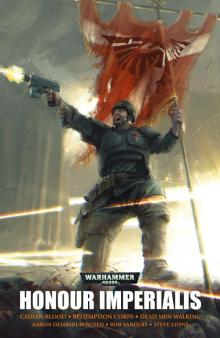 Honour Imperialis - Aaron Dembski-Bowden
Honour Imperialis - Aaron Dembski-Bowden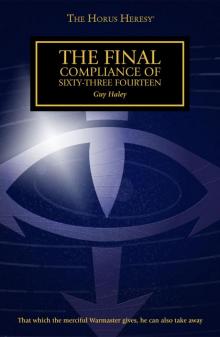 The Final Compliance of Sixty-Three Fourteen - Guy Haley
The Final Compliance of Sixty-Three Fourteen - Guy Haley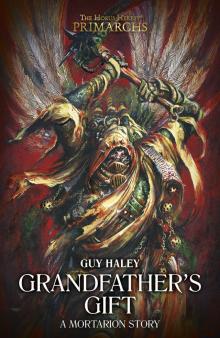 Grandfather’s Gift - Guy Haley
Grandfather’s Gift - Guy Haley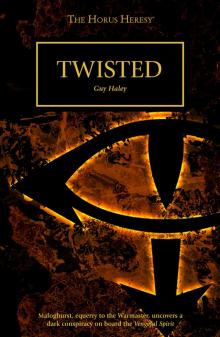 Twisted - Guy Haley
Twisted - Guy Haley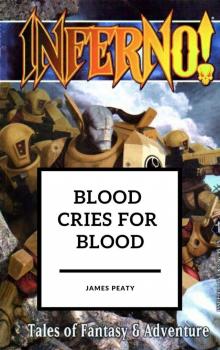 Blood Cries for Blood - James Peaty
Blood Cries for Blood - James Peaty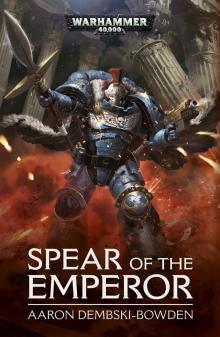 Spear of the Emperor - Aaron Dembski-Bowden
Spear of the Emperor - Aaron Dembski-Bowden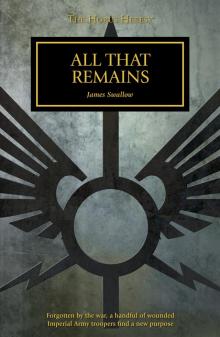 All That Remains - James Swallow
All That Remains - James Swallow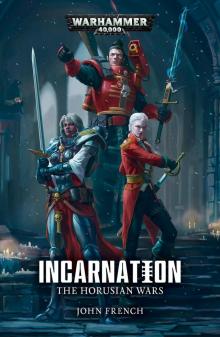 Incarnation - John French
Incarnation - John French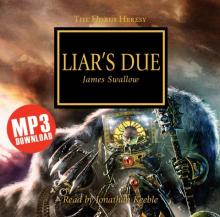 Liar's Due - Ben Swallow
Liar's Due - Ben Swallow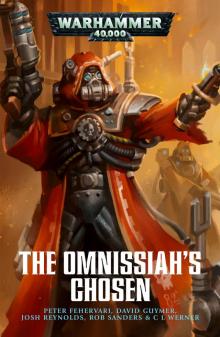 The Omnissiah's Chosen - Peter Fehervari
The Omnissiah's Chosen - Peter Fehervari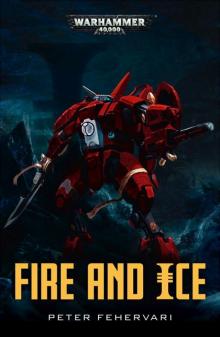 Fire and Ice - Peter Fehervari
Fire and Ice - Peter Fehervari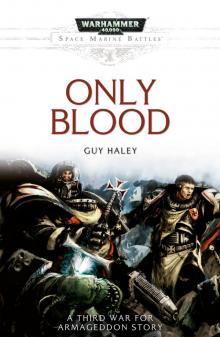 Only Blood - Guy Haley
Only Blood - Guy Haley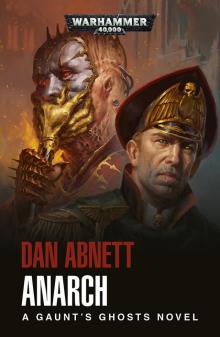 Anarch - Dan Abnett
Anarch - Dan Abnett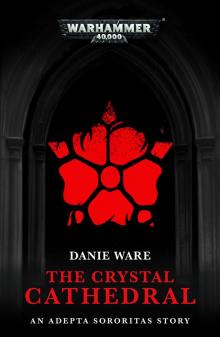 The Crystal Cathedral - Danie Ware
The Crystal Cathedral - Danie Ware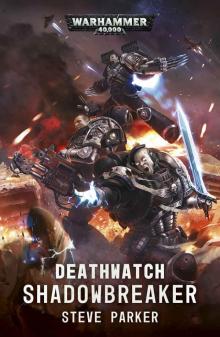 Shadowbreaker
Shadowbreaker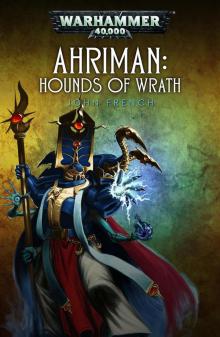 Hounds of Wrath - John French
Hounds of Wrath - John French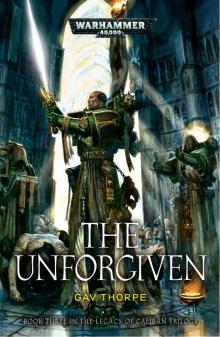 The Unforgiven - Gav Thorpe
The Unforgiven - Gav Thorpe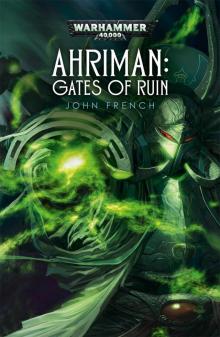 Gates of Ruin - John French
Gates of Ruin - John French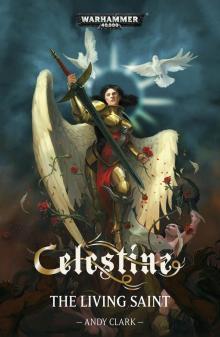 Celestine - Andy Clark
Celestine - Andy Clark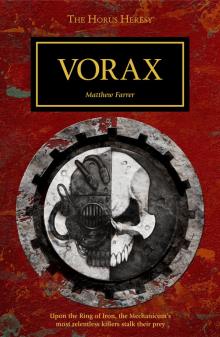 Vorax - Matthew Farrer
Vorax - Matthew Farrer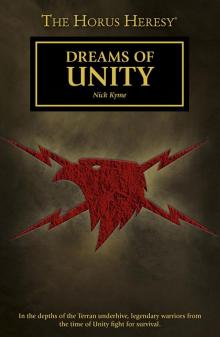 Dreams of Unity - Nick Kyme
Dreams of Unity - Nick Kyme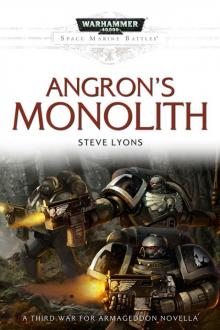 Angron's Monolith - Steve Lyons
Angron's Monolith - Steve Lyons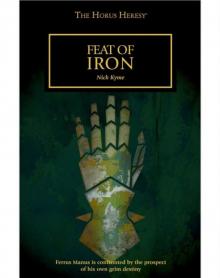 Feat of Iron - Nick Kyme
Feat of Iron - Nick Kyme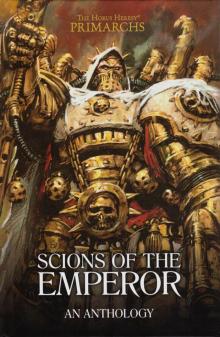 Scions of the Emperor
Scions of the Emperor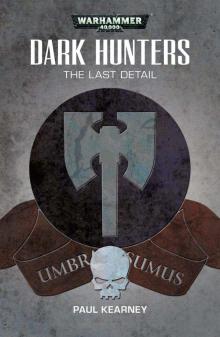 The Last Detail - Paul Kearney
The Last Detail - Paul Kearney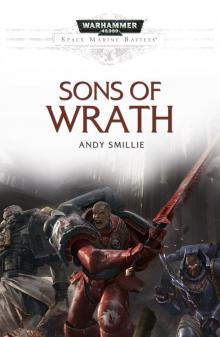 Sons of Wrath - Andy Smillie
Sons of Wrath - Andy Smillie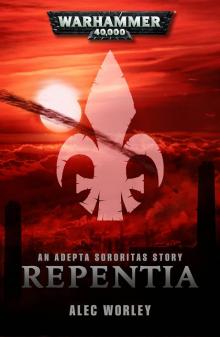 Repentia - Alec Worley
Repentia - Alec Worley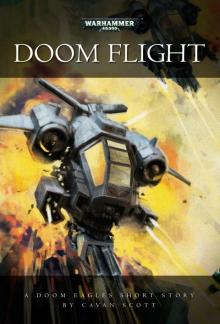 Doom Flight - Cavan Scott
Doom Flight - Cavan Scott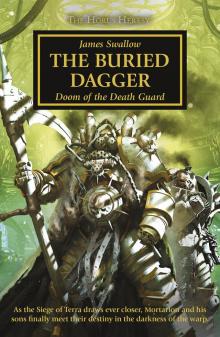 The Buried Dagger - James Swallow
The Buried Dagger - James Swallow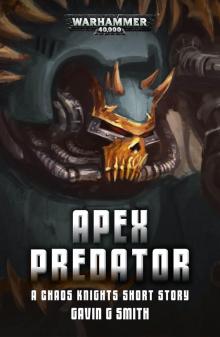 Apex Predator - Gavin G Smith
Apex Predator - Gavin G Smith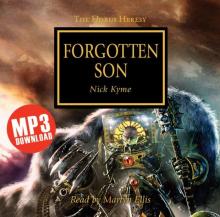 Forgotten Sons - Nick Kyme
Forgotten Sons - Nick Kyme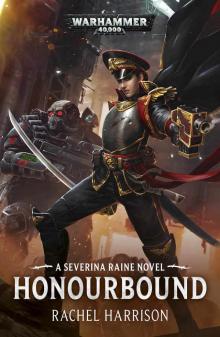 Honourbound - Rachel Harrison
Honourbound - Rachel Harrison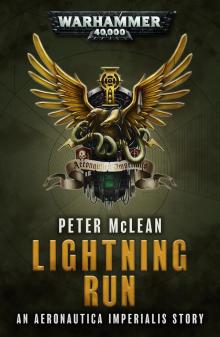 Lightning Run - Peter McLean
Lightning Run - Peter McLean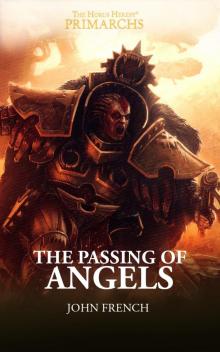 The Passing of Angels - John French
The Passing of Angels - John French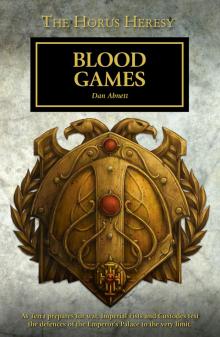 Blood Games - Dan Abnett
Blood Games - Dan Abnett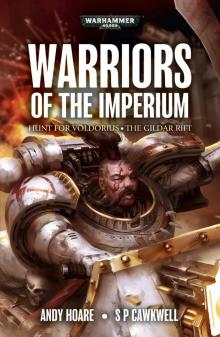 Warriors of the Imperium - Andy Hoare & S P Cawkwell
Warriors of the Imperium - Andy Hoare & S P Cawkwell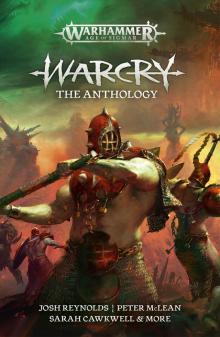 Warcry
Warcry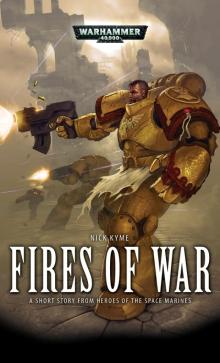 Fires of War - Nick Kyme
Fires of War - Nick Kyme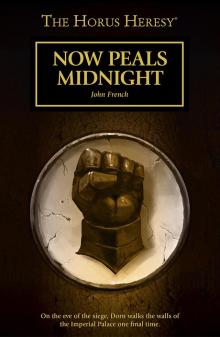 Now Peals Midnight - John French
Now Peals Midnight - John French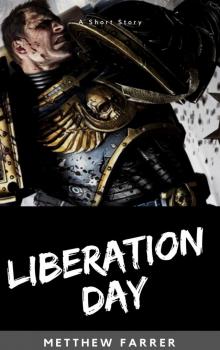 Liberation Day - Matthew Farrer
Liberation Day - Matthew Farrer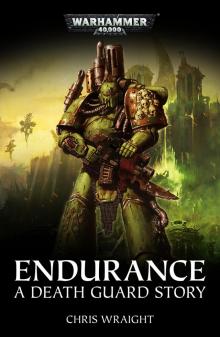 Endurance - Chris Wraight
Endurance - Chris Wraight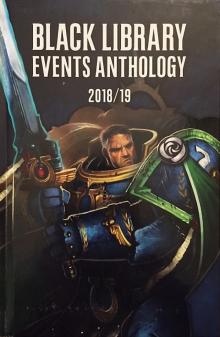 Black Library Events Anthology 2018-19
Black Library Events Anthology 2018-19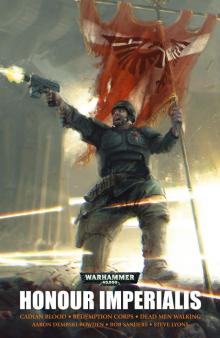 Honour Imperialis - Braden Campbell & Aaron Dembski-Bowden & Chris Dows & Steve Lyons & Rob Sanders
Honour Imperialis - Braden Campbell & Aaron Dembski-Bowden & Chris Dows & Steve Lyons & Rob Sanders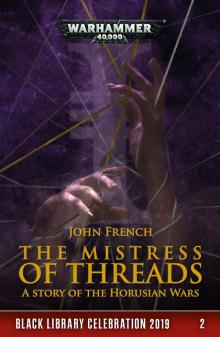 The Mistress of Threads - John French
The Mistress of Threads - John French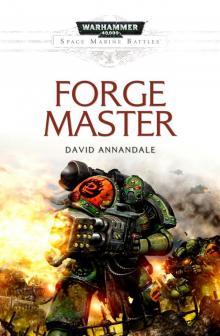 Forge Master - David Annandale
Forge Master - David Annandale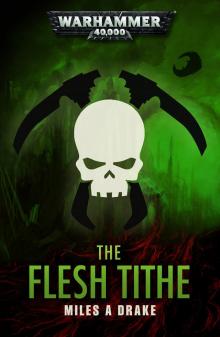 The Flesh Tithe - Miles A Drake
The Flesh Tithe - Miles A Drake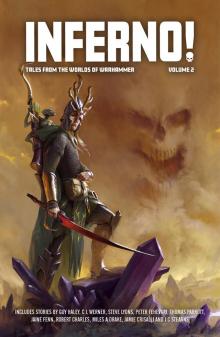 Inferno Volume 2 - Guy Haley
Inferno Volume 2 - Guy Haley Mercy of the Dragon - Nick Kyme
Mercy of the Dragon - Nick Kyme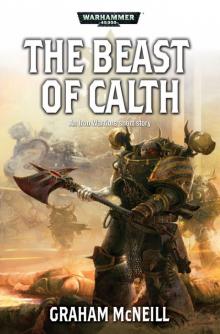 The Beast of Calth - Graham McNeill
The Beast of Calth - Graham McNeill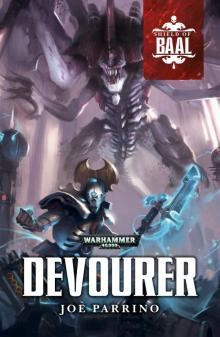 Devourer - Joe Parrino
Devourer - Joe Parrino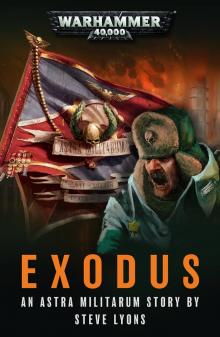 Exodus - Steve Lyons
Exodus - Steve Lyons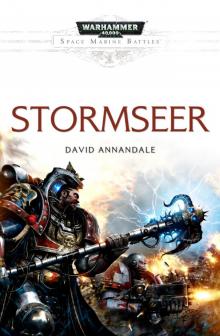 Stormseer - David Annandale
Stormseer - David Annandale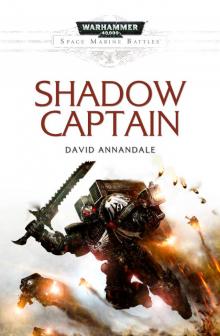 Shadow Captain - David Annandale
Shadow Captain - David Annandale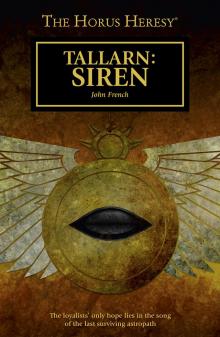 Tallarn- Siren - John French
Tallarn- Siren - John French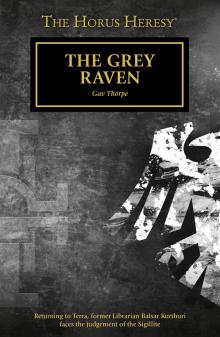 The Grey Raven - Gav Thorpe
The Grey Raven - Gav Thorpe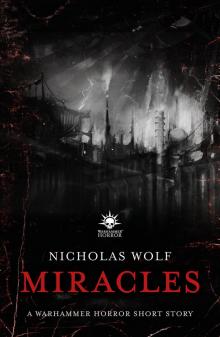 Miracles - Nicholas Wolf
Miracles - Nicholas Wolf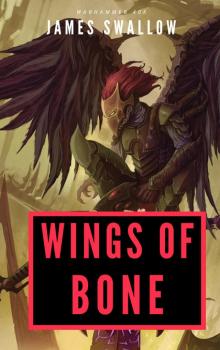 Wings of Bone - James Swallow
Wings of Bone - James Swallow